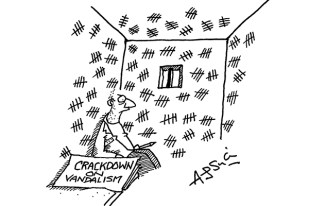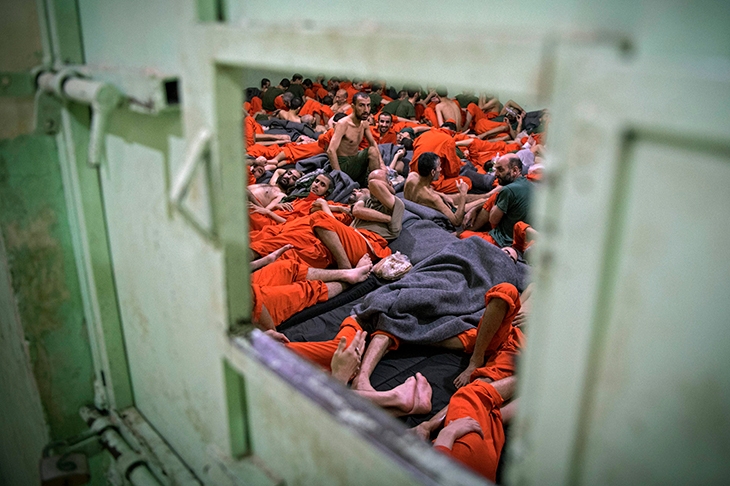In mid 2015, Macer Gifford, the City trader who went to Syria to fight Isis, got an unexpected phone call. He was in London for a break and busy doing media interviews as the unofficial spokesman for the Kurdish YPG militia. The caller, though, wasn’t just another hack after a quote. Instead, it was a lawyer whose client was on the ‘other side’. Tasnime Akunjee said he was working for the family of Shamima Begum, the teenager from Bethnal Green who had run away to join Isis.
‘He said they were looking at trying to get her out of Raqqa,’ remembers Gifford. ‘He asked if there was any way the YPG could pick her up, so that she could then be brought back to the UK.’
Was she keen to return, asked Gifford? No, said the lawyer, she was ‘young and a bit silly’ — but given a clear escape route, she might be persuaded. ‘At that point,’ Gifford says, ‘I told him that if she’s joined Isis, she’s made a bed for herself to lie in.’
Five years on, Begum is in a refugee camp in Syria, where she is appealing against the British government’s decision to strip her of her citizenship. Gifford, meanwhile, has just brought out a memoir about his time in Syria, which left him with little sympathy for the opposition — teenage girls included.
Fighting Evil is a modern-day version of George Orwell’s Homage to Catalonia, only with suicide bombers, drones and much dirtier combat. Some of the fiercest fighting is in Manbij, the town nicknamed ‘Little London’ because so many Britons lived there.

In his three years on the front line, 70 per cent of Gifford’s original unit ended up dead. By rights, he should probably have been among them. Unlike many of the internationals, who were British and American ex-soldiers, his only previous military experience was a few weekends with the TA.







Comments
Join the debate for just £1 a month
Be part of the conversation with other Spectator readers by getting your first three months for £3.
UNLOCK ACCESS Just £1 a monthAlready a subscriber? Log in